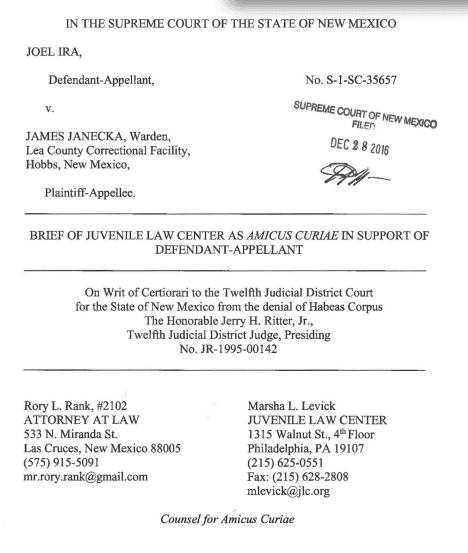
Summary of Argument
In 2010, the U.S. Supreme Court held in Graham v. Florida, 560 U.S. 48 (2010) that life without parole sentences for juvenile offenders committing nonhomicide offenses violate the Eighth Amendment’s ban on cruel and unusual punishments. The Court explained: “The juvenile should not be deprived of the opportunity to achieve maturity of judgment and self-recognition of human worth and potential. . . Life in prison without the possibility of parole gives no chance for fulfillment outside prison walls, no chance for reconciliation with society, no hope.” Id. at 79. See also Miller v. Alabama, 132 S. Ct. 2455, 2469 (2012); Montgomery v. Louisiana, 136 S. Ct. 718, 720 (2016). A sentence that provides no “meaningful opportunity to obtain release” is unconstitutional. Graham, 560 U.S. at 76.
Defendant-Appellant, Mr. Joel Ira, was convicted of criminal sexual penetration in the first degree for offenses that took place when he was between the ages of 14 and 15. He was sentenced to 91.5 years in prison, and must serve at least 45 years before becoming eligible for parole. As Mr. Ira was convicted of a non-homicide crime and sentenced to the functional equivalent of life without parole, he has been deprived of a “meaningful opportunity to obtain release” and his sentence is unconstitutional, despite being labeled as a term-of-years sentence. This Court should follow Graham’s mandate and hold that Mr. Ira’s sentence is unconstitutional and remand for a new sentencing hearing.